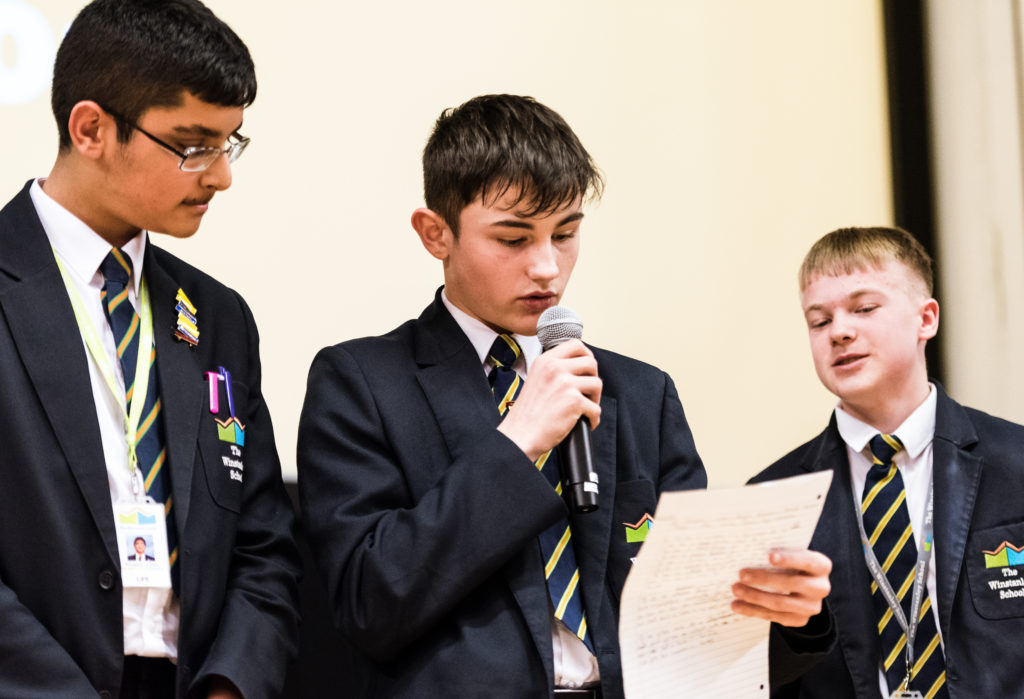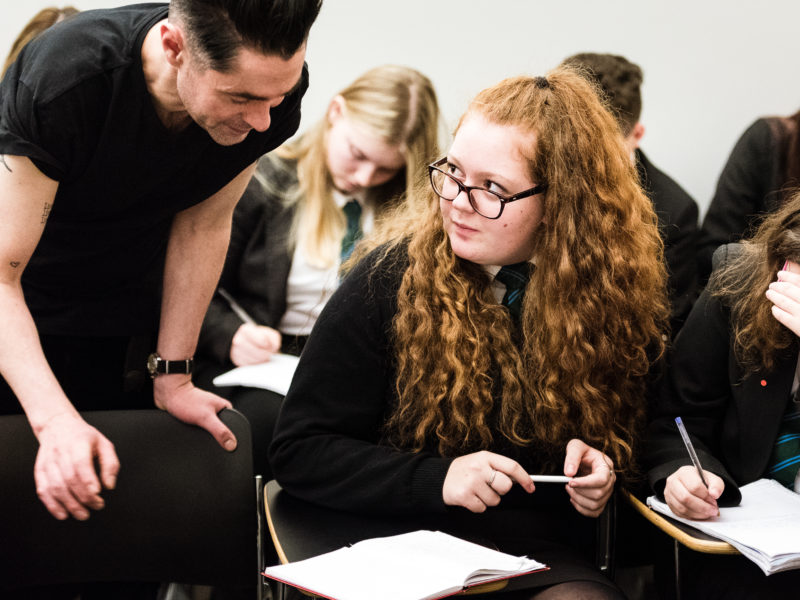Last month, Ofsted published its Annual Report for 2018/19, the year it introduced its new education inspection framework and sparked fresh debate about what works best to tackle disadvantage.
Is a clear and narrow focus on exam results of prime importance, because without good GCSEs, it’s hard for young people to make their way at all? Or, is a narrowing of the curriculum towards results actually compounding lack of opportunity for some young people?
In her introduction to the report, HM Chief Inspector Amanda Spielman argues against narrowing the curriculum, in particular against limiting students’ access to the arts and humanities.
“We mustn’t succumb to the seductive but wrong-headed logic that we help disadvantaged children by turning a blind eye to schools that narrow education … as long as they deliver acceptable grades at the end. Grades are hollow if they don’t reflect a proper education underneath. And we have no idea yet who the most talented and singular women and men are, who will drive this country forward in the 2030s, 40s and 50s. They could be in any primary or secondary school anywhere. All of them should have the chance to develop their talents. Poorer children shouldn’t get a worse choice”.
Amanda Spielman, Chief Inspector, Ofsted
It’s not that exam results are not crucial. They are. But the fact is, students who don’t have access to a richer, deeper and more rounded education, will never be competing on a level playing field — and if you live in low-income area with limited cultural provision, it’s far less likely you’ll have that access.
First Story has been practically addressing this inequality of opportunity for more than a decade. Our charity was born out of the belief that all young people, regardless of their socio-economic background, should benefit from a rich creative curriculum, with participation in extracurricular enrichment activities not limited to children whose families can pay for or enable it.
Ofsted’s new inspection framework emphasises the importance of embedding a curriculum that extends beyond the academic. It should provide for learners’ broader development, enabling them to discover and nurture interests and talents. Schools are now expected to support learners to develop their character – attitudes, behaviours and habits of mind like resilience, confidence and self-efficacy — as well as to provide opportunities for learners to progress into higher education or work.
When I see students in our creative writing workshops, I see them expanding into a new kind of space which they don’t get elsewhere. There is time to think and contemplate, to explore new ideas. There’s a very clear expectation of hard work and persistence towards producing something brilliant, but there are no limiting boundaries or rules around how language should be used. Really importantly, taking part in First Story asks young people to be writers and not just do writing. Participants in our workshops develop their own voices. They can be clear about what they want to say and are empowered to say it, with confidence, originality and precision.
To be clear and independent about what you think, and then to see that as having value in the world, is precisely the ‘proper education’ Spielman speaks about.
Being published is a crucial part of our offer to young people. Every summer, when we publish a new round of anthologies, we get to see how incredibly validating it is for students to hold their own anthology in their hands, to see their stories, experiences and views of the world in print, in perpetuity. Elizabeth, a First Story alumna from Hull, said that “Getting published as a writer felt amazingly awesome. To see my work published, I felt really proud of myself and that I can achieve anything I put my mind to, despite what the storm might be”. To be clear and independent about what you think, and then to see that as having value in the world, is precisely the ‘proper education’ Spielman speaks about.
We know from our evaluation, that one of the areas First Story participants grow most in is their confidence to read aloud. It takes a lot of courage to read your own writing in public. Our regional events and national Young Writers’ Festival provide regular opportunities for students to develop their confidence, public speaking and performance skills, beyond the safe space of their workshop group. We are committed to offering these kinds of memorable extracurricular experiences, and to providing the platforms for our young people’s voices to be heard.

We are also focussed on developing progression routes for our young writers. We don’t want the transformative experience of our programme to feel time-limited. For example, we’re currently piloting a new Ambassadors programme for alumni, so that students who’ve completed our intensive year can continue their engagement with us and with writing creatively. Here again, our programme speaks directly to Ofsted’s new inspection framework, which asks that ‘learners are ready for the next stage of education, employment or training’.
We have been developing our relationships with publishers, broadcasters and others too, exploring how the creative industries can add value to and also benefit from our programme — not least by providing our students with access, insights, and future ways in. If you don’t know anyone working in jobs in the creative industries, or indeed don’t know what kind of jobs there are to aim for – from screenwriting to production to legal – you may never think that world also belongs to you. We realise it’s not only our responsibility to get them there, but it is an important first step.
Last week, I went to a lecture given by the young adult writer, Holly Bourne, for the Eleanor Farjeon Award (brilliantly won by our friends at the Centre for Literacy in Primary Education). Holly spoke about how living inside a book as a child is a crucial formative experience, one that opens out life for many people. I’m sure this description will resonate with many readers. I’d say the same thing about being a writer. Going through the writing process in an authentic way establishes our sense of self and the world around us. Everyone should have the chance to do this. It shouldn’t be a choice only for a privileged few.


 Watch: Six Word Story 2019 finalists showcase
Watch: Six Word Story 2019 finalists showcase
